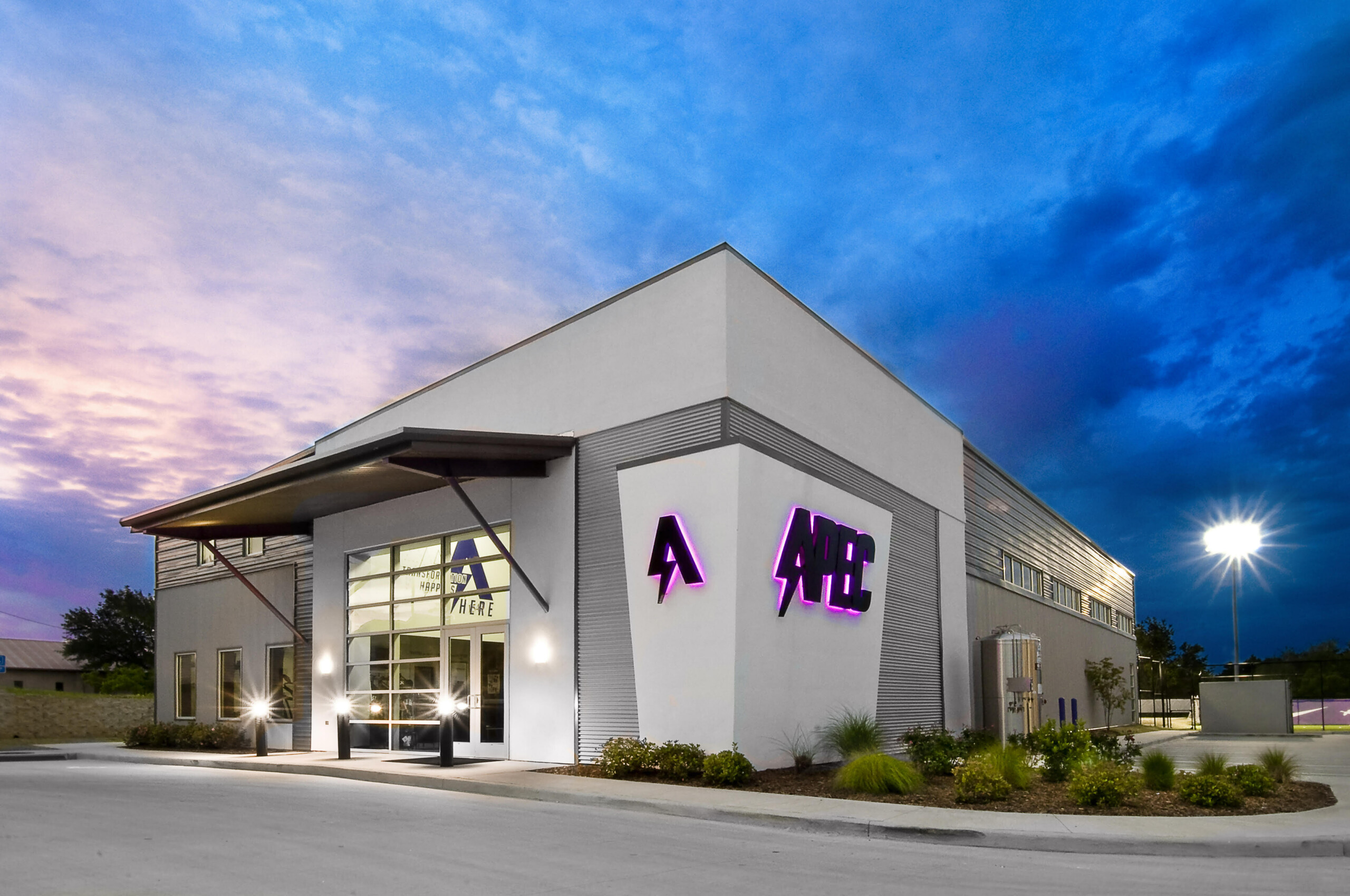How to Open a Gym in Arkansas in 2025
To open a gym in Arkansas requires careful planning, an understanding of the state’s specific regulations, and thoughtful financial management.

Arkansas, with its growing emphasis on health and wellness, presents a promising market for gym owners. However, success in this state requires navigating local business regulations and securing the appropriate AR gym licenses and permits.
| Key Information | Details |
|---|---|
| Estimated Cost to Open a Gym in AR | $100,000 to $600,000 depending on size, location, and equipment |
| Arkansas Gym Licensing Requirements | Business License, Health Department Permit, Zoning Approval |
| State Licensing Links | Arkansas Business Portal, Arkansas State Board of Athletic Training |
| Monthly Cost of Running a Gym in AR | $8,000 to $40,000 depending on rent, utilities, staffing, and maintenance |
| Key Regulations to Consider | Arkansas labor laws, zoning laws, Health Department regulations |
For an in-depth look at how to open a gym, refer to this detailed guide. Additionally, being aware of the cost to open a gym and selecting the best gym management software are crucial steps for a successful launch.
So if you are looking to open a gym in Arkansas, then ensuring you have the right legal documents and business tools in place is essential. From gym contracts and waivers to personal trainer agreements, having the right paperwork can help protect your business and streamline your setup. Get access to all the free fitness templates you need to successfully launch your gym in Arkansas.
Understanding gym licenses and permits costs in Arkansas is a crucial step in launching a successful fitness business. Meeting the legal requirements for opening a gym in Arkansas, including zoning regulations, business licenses, and operational permits, ensures your gym operates smoothly and legally. With Exercise.com, you can efficiently manage your gym’s memberships, class scheduling, and automated payments while focusing on growing your business. Get a demo now and see how our platform simplifies gym management in Arkansas.
From managing gym licenses and permits costs to automating billing and class scheduling, Exercise.com provides everything you need to run a successful gym in Arkansas. Whether you’re launching a new facility or optimizing an existing one, our software helps you streamline operations and maximize growth. Get a demo now.

Step #1 – Research Arkansas Gym Regulations and Licensing
The first step to opening a gym in Arkansas is to thoroughly understand the state’s regulatory environment. Arkansas requires gym owners to obtain several key licenses and permits, which may vary depending on the services offered and the location of the gym.
- Business License: Every gym in Arkansas must obtain a business license, with the application process differing by city or county.
- Health Department Permit: Necessary if your gym features amenities such as pools, saunas, or offers food services.
- Zoning Approval: Your gym’s location must adhere to local zoning laws, ensuring it is appropriate for a fitness facility.
It’s important to engage with local government agencies early in the process to ensure compliance with all necessary regulations. Different municipalities in Arkansas may have unique requirements concerning health and safety standards. Begin your registration through the Arkansas Business Portal.
Read More:
- Arkansas Business Portal
- Arkansas Department of Health
- Arkansas Secretary of State
- Arkansas State Board of Athletic Training
- Gym Legal Guide
- How to Protect a Gym from Legal Issues

Step #2 – Estimate the Costs to Open a Gym in Arkansas
The cost of opening a gym in Arkansas can vary widely based on factors like location, gym size, and the type of facility you want to establish. Generally, the startup costs range between $100,000 and $600,000.
- Initial Investment: This includes expenses for leasing or buying property, purchasing gym equipment, and making renovations.
- Licensing and Permit Fees: Costs associated with securing business licenses, health permits, and zoning approvals.
- Operational Costs: Monthly expenses such as rent, utilities, payroll, and insurance must be budgeted carefully.
Understanding the monthly cost of running a gym in Arkansas, which can vary from $8,000 to $40,000, is essential for maintaining a healthy cash flow.
Read More:
- Cost to Open a Gym
- Gym Design Guide
- Common Gym Lease Issues
- How to Negotiate a Gym Lease
- Gym Insurance Guide
Step #3 – Select the Best Gym Management Software
Choosing the right gym management software is critical to effectively running your fitness business in Arkansas. Exercise.com is an excellent choice for Arkansas gym owners, offering a comprehensive platform that simplifies daily operations and enhances member engagement.
- Integrated Management Tools: Handle memberships, class scheduling, payments, and marketing from one platform.
- Compliance Features: Ensure your gym meets Arkansas’s health and safety regulations with built-in compliance tools.
- Member Engagement: Utilize Exercise.com’s mobile app to keep members informed and engaged with your gym.
Opting for the best gym management software is a key step in ensuring your gym’s smooth operation and adherence to Arkansas’s regulations. The best gym management software, and the best personal training software means that you can manage your entire gym in one place.
Offer booking and scheduling for your gym’s packages, sessions, memberships, and more.

Create and sell fitness memberships, products, and digital offers.

Manage, message, and market to your leads and members.

All from your very own custom branded fitness apps.

And much more…

Step #4 – Secure Funding for Your Arkansas Gym
Securing sufficient funding is crucial when opening a gym in Arkansas. Depending on your financial situation, you may need to explore various funding sources, including bank loans, private investors, or state grants.
- Bank Loans: Arkansas-based banks may offer specific loan programs for small businesses in the fitness industry.
- Private Investors: Consider partnering with investors who have a strong understanding of the fitness market and Arkansas’s economy.
- State Grants and Incentives: Research state-specific grants and incentives that Arkansas offers to support small business ventures.
Adequate funding ensures that you can cover all startup costs and maintain operations as your gym starts to grow.
Read More:
Step #5 – Choose the Ideal Location
Selecting the right location for your gym in Arkansas is critical to the success of your business. Arkansas offers a range of markets, from urban centers like Little Rock and Fayetteville to more suburban and rural areas.
- High Traffic Areas: Locations near shopping centers, business districts, or residential areas can help attract a steady stream of clients.
- Parking Considerations: Ensure that your chosen location has adequate parking to accommodate your members.
- Demographic Analysis: Assess the demographics of your chosen area to ensure your gym’s offerings align with the local population’s fitness needs.
The right location can significantly impact the success of your gym in Arkansas.
Read More:
Step #6 – Design Your Gym Layout and Purchase Equipment
A well-thought-out gym layout is essential for creating an efficient and appealing environment for your members. Your gym should feature various workout areas to cater to a broad range of fitness preferences.
- Optimized Equipment Layout: Arrange equipment by category (e.g., cardio, weight training) to maximize space and ensure ease of use.
- Aesthetic Design: Choose a layout that reflects your gym’s brand and resonates with your target clientele.
- Regulatory Compliance: Make sure your gym’s design adheres to Arkansas’s health and safety regulations, including accessibility standards.
Investing in high-quality equipment and a well-planned layout will help attract and retain members at your Arkansas gym.
Read More:
Step #7 – Develop a Strategic Marketing Plan
Marketing plays a vital role in the success of your gym in Arkansas. An effective marketing plan should combine both digital and traditional strategies to maximize reach and visibility.
- Digital Outreach: Utilize social media platforms, email marketing campaigns, and local SEO strategies to connect with potential clients.
- Local Advertising: Leverage print ads, flyers, and partnerships with local businesses to enhance your gym’s visibility.
- Referral Programs: Implement programs that encourage existing members to refer new clients by offering rewards.
A comprehensive marketing plan will help you build a strong customer base and establish your gym as a leading fitness destination in Arkansas.
Read More:
The Best Choice for Gym Owners in Arkansas
Opening a gym in Arkansas requires a solid understanding of state regulations, thoughtful financial planning, and a well-executed marketing strategy. Exercise.com is the best choice for managing and growing your gym business in Arkansas, offering an all-in-one platform that enhances operations and boosts member satisfaction. For more information and to discover how Exercise.com can support your gym’s success, schedule a demo today.

Arkansas Gym Business Location Report Card
Grade: B
Arkansas offers a balanced environment for opening a gym, with low costs of living and doing business, making it an attractive option for new gym owners. The state’s economy is stable, though growth is slower compared to other regions, particularly in urban areas like Little Rock and Fayetteville. While the demand for fitness services is growing, especially in larger cities, the overall market can be variable across the state. The opportunity to serve a population with higher rates of obesity and related health challenges presents potential growth opportunities in fitness and wellness sectors.
| Factor | Grade | Comments |
|---|---|---|
| Population Size and Growth | B- | Modest population growth, particularly in urban centers like Little Rock and Fayetteville, though growth is slower in rural areas. |
| Age Distribution | B | Balanced age distribution, with opportunities to target both younger populations in cities and older adults in suburban and rural areas. |
| Income Levels | C+ | Median income is below the national average, which may limit discretionary spending on fitness services, particularly in less affluent areas. |
| Market Demand and Competition | B- | Moderate demand for fitness services in urban areas, with lower competition in suburban and rural regions, offering growth opportunities. |
| Cost of Doing Business | A- | Low business costs, including affordable real estate and taxes, making it easier to start and sustain a gym business. |
| Economic Stability | B- | Stable economy with key industries like agriculture, manufacturing, and retail, though economic growth is slower compared to other regions. |
| Supportive Business Environment | B | Arkansas offers a generally supportive environment for small businesses, with some incentives available and a relatively low regulatory burden. |
| Physical Activity Levels | C+ | Growing interest in fitness, particularly in urban areas, though overall levels of physical activity are lower compared to national averages. |
| Community Support for Fitness | B- | Moderate community support for fitness initiatives, with stronger engagement in urban areas like Little Rock; rural areas are slower to adopt fitness trends. |
| State and Local Regulations | B+ | Favorable regulatory environment with straightforward business requirements, making it relatively easy to start and operate a gym. |
| Real Estate Considerations | B+ | Affordable real estate, particularly outside of major urban centers; urban property prices are increasing but remain reasonable. |
| Labor Market | B | Good availability of fitness professionals with moderate wage expectations, making staffing manageable. |
| Consumer Behavior and Preferences | B- | Steady demand for fitness services, particularly for group fitness classes and community-oriented programs, though demand can vary by region. |
| Weather and Climate | B | Mild climate with four distinct seasons supports year-round fitness activities, though hot summers may increase demand for indoor gym facilities. |
| Safety and Crime Rates | B | Crime rates vary, with safer environments in suburban and rural areas compared to certain urban centers. |
| Cost of Living | A- | Low cost of living, making gym memberships more affordable to a wide range of residents. |
| Economic Development | B- | Steady economic development in urban areas, with opportunities for growth in the fitness sector, especially as interest in health and wellness increases. |
Arkansas Gym Statistics
Arkansas has over 400 gyms, with approximately 1 million residents holding gym memberships, representing 33% of the state’s population. The average gym size in Arkansas ranges from 10,000 to 20,000 square feet. Popular gym chains such as Planet Fitness and Anytime Fitness have a strong presence throughout the state. Monthly membership costs typically range between $30 and $50, while personal training sessions cost between $40 and $70 per hour. The gym industry in Arkansas is growing at a rate of 4.1% annually.
| Statistic | Value |
|---|---|
| Total Number of Gyms | 400+ |
| Average Monthly Membership Cost | $30 – $50 |
| Number of Gym Members (Approx.) | 1 million |
| Percentage of Population with Membership | 33% |
| Average Gym Size (Square Feet) | 10,000 – 20,000 |
| Most Popular Gym Chains | Planet Fitness, Anytime Fitness |
| Average Personal Training Cost (Per Hour) | $40 – $70 |
| Growth Rate of Gym Industry (2023-2024) | 4.1% |
| Top Cities for Gyms | Little Rock, Fayetteville, Fort Smith |
| Percentage of Gyms Offering Group Classes | 80% |
| Percentage of Gyms with 24/7 Access | 55% |
| Average Annual Revenue per Gym | $500,000 – $1.0 million |
Arkansas Gyms per Capita by City
| City | Population | Gyms | Gyms per Capita | Income | Fitness Rank |
|---|---|---|---|---|---|
| Little Rock | 202,591 | 150 | 1,351 | $51,000 | Medium |
| Fayetteville | 94,057 | 90 | 1,045 | $50,000 | High |
| Fort Smith | 89,142 | 65 | 1,372 | $42,000 | Medium |
| Springdale | 84,161 | 70 | 1,202 | $57,000 | Medium |
| Jonesboro | 80,714 | 70 | 1,153 | $46,000 | Medium |
| Rogers | 70,522 | 65 | 1,085 | $62,000 | High |
| North Little Rock | 66,810 | 50 | 1,336 | $43,000 | Medium |
| Conway | 68,100 | 60 | 1,135 | $54,000 | Medium |
| Bentonville | 54,164 | 55 | 985 | $80,000 | High |
| Pine Bluff | 41,474 | 30 | 1,382 | $33,000 | Medium |
| Hot Springs | 38,797 | 35 | 1,109 | $36,000 | Medium |
| Benton | 39,806 | 35 | 1,137 | $55,000 | Medium |
| Texarkana | 30,259 | 25 | 1,210 | $41,000 | Medium |
| Cabot | 27,399 | 25 | 1,096 | $65,000 | Medium |
| Searcy | 24,318 | 20 | 1,216 | $45,000 | Medium |
| Russellville | 29,338 | 25 | 1,174 | $39,000 | Medium |
| Paragould | 29,944 | 20 | 1,497 | $41,000 | Medium |
| Van Buren | 23,212 | 18 | 1,290 | $41,000 | Medium |
| Maumelle | 19,251 | 20 | 963 | $84,000 | High |
| El Dorado | 17,925 | 15 | 1,195 | $42,000 | Medium |
| Forrest City | 13,012 | 8 | 1,626 | $28,000 | Medium |
| Marion | 12,467 | 10 | 1,247 | $54,000 | Medium |
| Harrison | 13,171 | 10 | 1,317 | $37,000 | Medium |
| Mountain Home | 12,925 | 10 | 1,293 | $38,000 | Medium |
| Helena-West Helena | 9,989 | 5 | 1,998 | $25,000 | Medium |

How much does it cost to open a gym in Arkansas?
The cost to open a gym in Arkansas generally ranges between $50,000 to $350,000, depending on the size of your facility, location, and the types of equipment and services you plan to offer. Costs can vary significantly in areas like Little Rock versus smaller towns across the state.
Read More: Cost to Open a Gym
Who regulates gyms in Arkansas?
Gyms in Arkansas are regulated by the Arkansas Department of Health (ADH) and the Arkansas Attorney General’s Office. These bodies ensure that gyms comply with health, safety, and consumer protection laws, especially in regard to membership agreements.
What licenses do you need to open a gym in Arkansas?
To open a gym in Arkansas, you’ll need a general business license from your local city or county government. If you plan to offer membership contracts, you must adhere to regulations enforced by the Arkansas Attorney General’s Office. Additionally, depending on the services offered, you may need health permits from the Arkansas Department of Health.
What are the Arkansas gym license requirements for ongoing licensing?
For ongoing licensing in Arkansas, you’ll need to renew your business license annually and ensure that any necessary health permits remain current. Gyms offering memberships must comply with consumer protection laws and may be subject to periodic inspections to ensure continued adherence to state regulations.
How do I get what I need to open a gym in Arkansas online?
You can start the process of opening a gym in Arkansas by registering your business through the Arkansas Secretary of State’s online portal, AR SOS. This platform allows you to obtain necessary business licenses, health permits, and other required documentation. Local city or county websites may also offer additional resources.
How to start a fitness business in Arkansas?
Starting a fitness business in Arkansas involves several key steps: conducting market research, creating a comprehensive business plan, securing a prime location, and obtaining the necessary licenses and permits. It’s essential to comply with Arkansas’s specific regulations for gyms and develop a strong marketing strategy to attract clients.
Read More: How to Start a Fitness Business
What are the legal requirements to open a gym in Arkansas?
To legally open a gym in Arkansas, you must acquire a business license from your local city or county, register with the Arkansas Attorney General’s Office if offering memberships, and comply with health department regulations. Liability insurance is also recommended to protect your business from potential lawsuits.
What are the most important Arkansas gym laws?
Key gym laws in Arkansas include compliance with the Arkansas Deceptive Trade Practices Act, which governs membership agreements and consumer protections. Additionally, gyms must follow health and safety standards set by the Arkansas Department of Health.
How do I start a small gym business?
Starting a small gym business in Arkansas requires a detailed business plan, securing a suitable location, purchasing necessary equipment, and ensuring all legal and licensing requirements are met. Effective marketing and excellent customer service are crucial to building a loyal client base.
Read More: How to Start a Small Gym
How profitable is owning a gym?
Owning a gym in Arkansas can be a profitable venture, with typical profit margins ranging from 10% to 30%. Profitability depends on various factors, including location, the diversity of services offered, and how effectively the gym is managed. Additional revenue streams such as personal training can further boost profitability.
Is it worth it to open a gym?
Opening a gym in Arkansas can be a rewarding investment if you have a well-researched business plan and a passion for fitness. While the initial investment is significant, a well-run gym in a good location can provide a steady income and opportunities for growth.
Should a gym be an LLC?
Forming your gym as an LLC in Arkansas is advisable to protect your personal assets from business liabilities. An LLC structure also offers tax flexibility and can enhance your business’s credibility.
Read More: Best Business Structure for Gyms
What permits are needed to open a gym in Arkansas?
To open a gym in Arkansas, you will need a general business license, a certificate of occupancy, and possibly health department permits depending on the services you offer. Gyms offering memberships must also comply with consumer protection regulations enforced by the Arkansas Attorney General’s Office.
Does OSHA apply to gyms?
Yes, OSHA regulations apply to gyms in Arkansas, requiring you to maintain a safe working environment for employees. This includes proper equipment maintenance, facility cleanliness, and ensuring that employees are trained in necessary safety protocols.
How to open a gym with no money?
Opening a gym with limited funds in Arkansas is challenging but possible through securing investors, applying for business loans, or forming strategic partnerships. You might also consider starting small or sharing space to reduce initial expenses.
Read More: How to Start a Gym With No Money
How hard is it to start a fitness business?
Starting a fitness business in Arkansas requires significant effort, from developing a business plan and securing financing to navigating state regulations and marketing. With dedication and strategic planning, you can establish a successful fitness business.
How do I start a fitness business from scratch?
To start a fitness business from scratch in Arkansas, begin with thorough market research to identify your target demographic. Develop a comprehensive business plan, secure funding, choose a strategic location, and ensure compliance with Arkansas’s gym licensing requirements. Effective marketing is essential to build and maintain a client base.
Is it difficult to start a gym?
Starting a gym in Arkansas can be challenging due to the substantial initial investment, regulatory requirements, and competitive market. However, with a well-thought-out plan, strong marketing efforts, and a commitment to providing high-quality services, it is possible to successfully launch and operate a gym.
How many members does a gym need to be profitable?
The number of members required for a gym to be profitable in Arkansas depends on overhead costs, membership fees, and additional revenue streams. Typically, a gym may need between 200 to 300 active members to cover expenses and generate profit.
Read More: How many members does a gym need to be profitable?
What is the initial investment for a gym?
The initial investment for opening a gym in Arkansas includes costs related to leasing or purchasing a facility, equipment, renovations, staffing, and marketing. This can range from $50,000 to $350,000 depending on the scale and location of your gym.
Is it hard to start a gym business?
Starting a gym business in Arkansas is challenging due to high startup costs, regulatory compliance, and the need to differentiate yourself in a competitive market. However, a strong business plan, understanding of local market dynamics, and effective marketing strategies can lead to success.
How to open a cheap gym?
To open a cost-effective gym in Arkansas, consider leasing equipment, choosing a smaller or more affordable location, and focusing on essential services initially. Expanding your offerings as your membership grows can help you manage costs effectively.
Is it worth it to franchise a gym?
Franchising a gym in Arkansas can be a valuable opportunity if you’re looking to benefit from an established brand and business model. However, it’s important to consider the franchise fees and operational guidelines that come with this option.
Read More: How to Buy a Gym Franchise
How much money can you make owning a gym franchise?
The income from owning a gym franchise in Arkansas can vary based on factors like location, brand reputation, and management efficiency. A well-managed franchise in a prime location can be highly profitable.
Read More: How much money can you make owning a gym franchise?
What are the pros and cons of owning a gym?
Owning a gym in Arkansas has several benefits, including the potential for steady income and the opportunity to promote health and wellness. However, there are challenges as well, such as high initial costs, the need for continuous marketing, and maintaining member retention.
Read More: Pros and Cons of Owning a Gym
What are the common reasons gyms fail?
Common reasons gyms fail in Arkansas include poor location choice, lack of sufficient capital, inadequate marketing, and failure to retain members. Success in the gym industry requires careful planning, understanding market trends, and delivering outstanding customer service.
Read More: Reasons Gyms Fail
Should I open a gym in Little Rock?
Little Rock offers a dynamic and health-conscious population, making it an attractive location for opening a gym. However, competition is high, so a unique value proposition and an effective marketing strategy are crucial for success.
Should I open a gym in Fayetteville?
Fayetteville’s growing population and strong community focus provide a promising environment for opening a gym. Understanding the local market and catering to the specific needs of residents can help your gym thrive.
Should I open a gym in Fort Smith?
Fort Smith’s diverse and active community offers a solid market for a new gym. A well-targeted business plan and community engagement can help differentiate your gym from others in the area.
Should I open a gym in Springdale?
Springdale is known for its expanding population, making it a viable location for a gym. Offering specialized services or targeting specific demographics can help your gym succeed in this competitive market.
Should I open a gym in Jonesboro?
Jonesboro’s growing population and focus on wellness provide a good opportunity for opening a gym. By offering unique fitness services and engaging with the community, your gym can stand out and attract a loyal clientele.
What is the best gym management software for Arkansas gyms?
The best gym management software for Arkansas gyms should offer comprehensive tools for managing memberships, scheduling, billing, and marketing. Exercise.com is an excellent option, providing features tailored to meet the needs of gyms in Arkansas, ensuring smooth operations and regulatory compliance.












